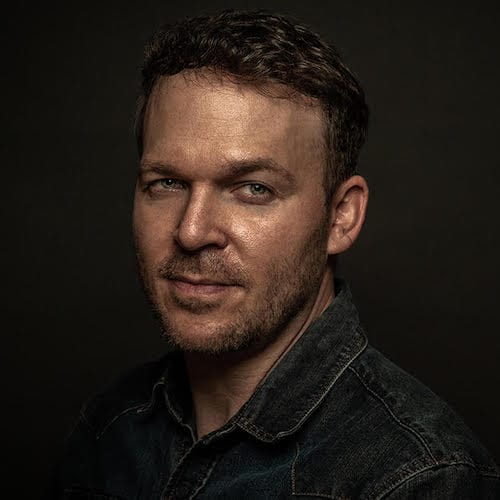Can God speak through A.I.?
That’s the provocative question a pastor in Texas asked rhetorically after using Open AI’s ChatGPT to create an entire worship service. The thematic prompt he gave was: How can we recognize truth in a world where A.I. blurs the truth? ChatGPT came up with a welcome, a sermon, a children’s message and even a four-verse song which included the lines As algorithms spin webs of lies, We lift our gaze to endless skies, Where Christ’s teachings illumine our way, dispelling falsehoods with the light of day.
He didn’t claim it was great poetry, but it was a big hit with the congregation. A rabbi interviewed for the story discussed the challenges of its use as well. He recalled being taken aback when the program he nicknamed “Rabbi Bot” asked him to include in his sermon a line about itself: Just as the Bible instructs us to love our neighbors, can we also extend this love and empathy to the A.I. entities we create? [The New York Times, January 7, 2025, page B3]
Well. I’m kinda sorry I won’t be practicing ministry with such tools (only a little bit). Sermons after all are not simply well-crafted essays about religion. At their best, they connect to the hungers and fears and noble impulses we experience as humans, created in God’s image. They speak to our deepest selves, not just our intellect.
They are born of human encounter with Divine Mystery, and provide more than integration of sacred text and the pastor’s theological perspective, with a joke and a couple of illustrations thrown in. There’s something that happens between pastor and congregation in the preaching moment, sparked by our shared humanity—imperfect, sometimes halting and emotion-filled– that can’t be automated. Call it Spirit. Call it holy. I sometimes think it’s a miracle.
But even when highly intelligent, there’s nothing artificial about it.
Our morning text continues last Sunday’s reading of Jesus’ first public sermon. Anointed in baptism by the Holy Spirit, Jesus begins his ministry with a rousing rendition of a popular prophetic teaching about bringing good news to the poor, release to the captives, recovery of sight to the blind, and freedom from all oppression. His stunning commentary on it is a single line: Today this scripture has been fulfilled in your hearing.
Everyone is impressed. They could hardly believe that this was the son of someone they knew well. Applause and admiration. The perfect sermon—a preacher’s dream—-resonating fully with the people’s hopes and expectations and understanding of faith. But turns out Jesus goes in a completely different direction that even A.I. would have found impossible to predict. It doesn’t go well. A reading from the good news according to Luke, in the fourth chapter, verses 23 through 30.
Listen for God’s Word to the Church on a weekend when we honor a preacher and prophet who was martyred for speaking truth to power, whose dream of justice for all is still met with rage and indignation. [Luke 4:23-30]
Why did the hometown crowd explode with anger as Jesus began to tease out the implications of his message? As long as he was preaching about freedom and healing, they were approving; these were promises made long ago to the children of the covenant, and it was time for God to make good on them.
But as soon as Jesus widened the scope of God’s blessing towards ones outside the family, it unleashed the fury of the fearful, folks whose anger fuels them because they see life as a battleground and they its trusty warriors protecting the border, keeping the bloodlines pure and making the dividing lines clear. The courage he exhibited that day as he calmly walked through their wrath would be seen again and again, as he met violence with peace, artifice with truth, and the love of power with the power of love.
The witness of Jesus is the backbone of the Presbyterian Church’s Matthew 25 movement. In my final sermons as your pastor, we have explored its mandate to build vital faith communities, eradicate systemic poverty, and today, will consider the church’s role in dismantling structural racism.
And friends, I can’t imagine going about that task without remembering how Jesus started this work at worship in the synagogue in Nazareth that day, as he revealed God’s redemptive arm towards vulnerable people and despised outsiders. In the strength of that witness, Martin Luther King preached an expansive gospel uniting Divine love and human justice. We are caught, King wrote, in an inescapable network of mutuality, tied in a single garment of destiny. Whatever affects one directly, affects all indirectly.
There is no opt-out through privilege. This is not an optional priority the Church can address at its leisure, after other, more immediate concerns. To see the truth of pervasive racism, respond with repentance, and seek reconciliation and reparation, forms the very heart of the good news of God’s love and good purposes for the whole human community.
We have done that in fits and starts, clumsily, at times defensively, and I am deeply grateful for the Peoples Church folk whose own witness, candor, and friendship have assisted us in the hard work required. Our shared discussion of Isabel Wilkerson’s book Caste, voter registration efforts to reduce disenfranchisement, and regular worship together have moved us forward incrementally. But on the threshold of a new administration that has publicly decried attempts to make systems more equitable and halted efforts to strengthen diversity, equity and inclusion, it’s never been more important.
Not unlike the Nazareth congregation of Jesus’ day, our nation is steeped in a tradition that masks our accountability for the way things are and our complicity in white privilege, nationalism, xenophobia, turning our backs on refugees and asylum seekers and undocumented migrants. Headlines just this week highlighted huge inequities in health outcomes between whites and people of color. But it doesn’t have to be this way.
Jesus continues to walk among us to help us see the truth and set us free. Now is not the time to give up on each other nor on this sacred work. As the late poet and Nobel prize winner (whose books number among those “banned” by nervous authorities) Maya Angelou noted History, despite its wrenching pain, cannot be unlived, but if faced with courage, need not be lived again.
. . . if faced with courage. . . . .
Courage. I learned recently that its linguistic origins point toward an inner dynamic, from the French coeur, or heart; what one author described as the measure of our heartfelt participation with life and one another, and with a community’s work toward a thriving future. Courage is what love looks like when tested by the simple everyday necessities of being alive. [David Whyte, Consolations: The Solace, Nourishment, and Underlying Meaning of Everyday Words, pp. 49-50]
Can God speak through A.I.? Well, I know this for certain: God speaks through a church courageous enough to trust Jesus, to listen to voices that have been structurally silenced, and seek together the paths that will lead to justice and peace and unity.
May God multiply your courage, beloved Central, now and in all the days ahead.
May it be so.





